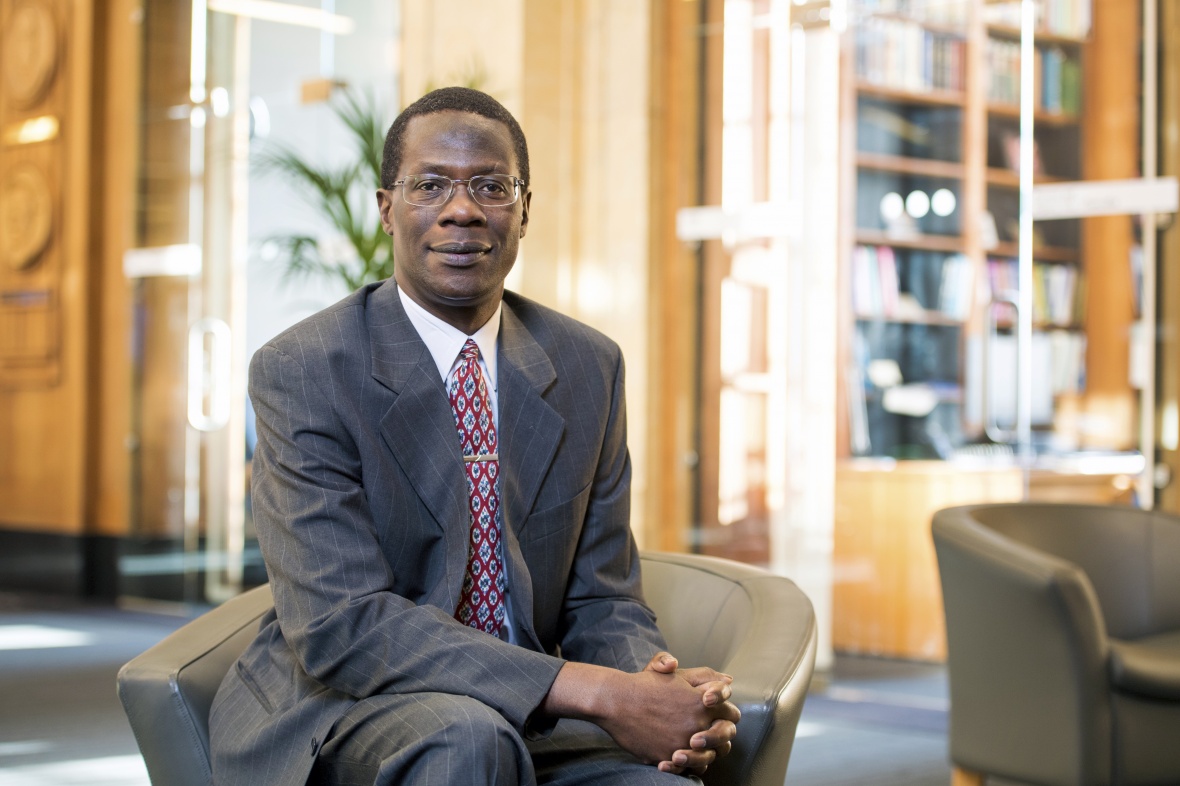
December 7, 2020, by Joshua Hawkins
Reflections on Global Engagement in 2020 and beyond, a Pro-Vice-Chancellor blog

Professor Robert Mokaya, Pro-Vice-Chancellor Global Engagement
It has been a year of unprecedented change for all involved in the internationalisation of Higher Education as we consider how to reshape and revitalise our global engagement activities during this pandemic. It has also been a significant year operationally for global engagement colleagues, with the dissolution of the Office of Global Engagement and the creation of the Global Engagement Strategy Support Unit (GESSU). The new Unit has been operational since early March, and just before the pandemic forever changed the way we think about engaging internationally. The unit and other global engagement colleagues are working hard to deliver a step-change in our ability to connect with international partners, maximise international research opportunities, and promote a global mindset in our staff and students. The Unit’s focus for the remainder of 2020 and early 2021 is the development of a tri-Campus strategic development plan for a Global Engagement Strategy that will strengthen our position at the forefront of higher education internationalisation.
In July an Interim Global Engagement Strategic Delivery Plan was approved. This Interim SDP articulates a series of cross-departmental initiatives and working practices designed to support the immediate priorities of the International Student Recruitment and International Research teams during the pandemic and beyond. Spanning Advancement, Careers, International Partnerships, Study Abroad, Research, and Recruitment, its development and implementation marked the beginning of an exciting new phase for Global Engagement at Nottingham. We are now working across faculties, professional services departments, and our international campuses to develop the full Global Engagement Strategic Delivery Plan, comprehensive strategies for Europe (post-Brexit), India and Indonesia, and a partnership development strategy to support a number of exciting tri-Campus initiatives underway with the University of Connecticut.
This Autumn also saw the relaunch of our Global Engagement Newsletter and the launch of a new Global Engagement Hub, accessible by all colleagues across each of our campuses and designed to be the first port of call for anyone involved in our international activity. Soon, and for the first time, data and analysis on our international students, alumni, research and knowledge exchange activity, and international partnerships, will be available to all staff on one system. The Hub is a window to our global outlook, including teaching and research collaborations in more than 100 countries worldwide. The Hub also provides toolkits, advice, and guidance to support colleagues in developing international initiatives, including a comprehensive internal contact page to ensure that when further advice is needed, specialist support is only an email away. The success of this new tool is, of course, dependent on the data we hold, and I encourage you all to complete the collaboration self-reporting form which can be viewed on the Global Engagement Hub.
As we look to the future and beyond the COVID-19 crisis, it is becoming increasingly clear that the way we engage with our international partners must change – and not just in the short-term. We must better utilise technology to initiate and continue dialogue with our global friends and carry forward the lessons we learn into our post-COVID future. A recent example of this in practice took place in July, where we hosted an online workshop with our partners at the University of Tübingen to develop collaboration plans and to explore funding mechanisms. The success of this virtual link-up means we should now consider this model as the first stage in any new international partner discussion – during the pandemic, and beyond. Another example is the Global Citizenship course, an online international opportunity run by Universitas 21 in October and open to students across the U21 network. Students had the opportunity to work collaboratively with other students across borders and time zones to develop skills while addressing global issues outlined in the United Nation Sustainable Development Goals. Students were guided by Common Purpose facilitators and encouraged to reflect on the improvement of their cultural competency throughout the course and how their learning as both individuals and groups can be turned into valuable global action. U21 generously offered 75 free places to University of Nottingham students. The Study Abroad team promoted the opportunity on the Study Abroad Facebook page, through colleagues in the Careers and Employability Service, and directly to students who were unfortunately required to withdraw from their international exchange opportunity in 2020/2021 due to COVID-19. I am pleased that recruitment across the UK and Malaysia campuses was so successful that U21 asked us to close applications well before the deadline. This is an indication that despite current travel limitations, our students are searching for alternative avenues in order to engage with students and education across the globe. The Global Engagement team will continue to promote online opportunities offered by partner universities to future students seeking out international opportunities.
Global engagement remains core to our character as a university and must be harnessed as part of not only our recovery but also our future success and sustainability. The past nine months have been very challenging for the University and we still face uncertain periods ahead. However, the challenges we face also offer opportunities to evolve our global perspective and deepen our collective impact as a global university. I hope you will join me, and global engagement colleagues, in ensuring that all our staff and students are provided with an international experience that engenders a global mindset within our community.
No comments yet, fill out a comment to be the first

Leave a Reply